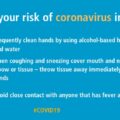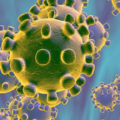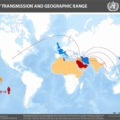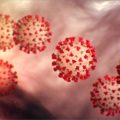As some communities begin to reopen during the global coronavirus (COVID-19) pandemic, public health officials say the best way to prevent illness is to avoid being exposed to this virus. Below are some steps from the National Centers for Disease Control and Prevention to help protect yourself and others. Stay informed about what’s happening in your community, and always follow the directions of state and local authorities.
How To Protect Yourself And Others
Wash your hands often with soap and water for at least 20 seconds, especially after being in a public place, or after blowing your nose, coughing or sneezing.
If soap and water are not readily available, use a hand sanitizer with at least 60% alcohol.
Avoid touching your eyes, nose and mouth with unwashed hands.
Avoid close contact with people who are sick. Some people without symptoms may be able to spread the virus.
Stay home as much as possible and avoid non-essential travel.
Practice social distancing by keeping at least 6 feet — about two arm lengths — away from others if you must go out in public.
Stay connected with loved ones through video and phone calls, texts and social media.
Cover your mouth and nose with a cloth face cover when around others and when you must go out in public, such as to a grocery store. The cloth face cover is meant to protect other people in case you are infected.
However, do NOT place cloth face coverings on young children under age 2, anyone who has trouble breathing, or is unconscious, incapacitated or otherwise unable to remove the mask without assistance.
In addition, do NOT use a facemask meant for a health care worker.
Continue to keep about 6 feet between yourself and others. The cloth face cover is not a substitute for social distancing.
Cover your coughs and sneezes. Use a tissue to cover your nose and mouth, and throw used tissues in a lined trash can. If a tissue isn’t available, cough or sneeze into your elbow — not your hands. Wash your hands immediately.
Clean and disinfect frequently touched surfaces daily. This includes tables, doorknobs, light switches, countertops, handles, desks, phones, keyboards, toilets, faucets and sinks. Follow CDC guidance.
In this Video Doyin Odubanjo, The executive secretary of the Nigerian Academy of Science and past chair, Association of Public Health Physicians of Nigeria, shares vital Coronavirus tips for people to stay safe.





